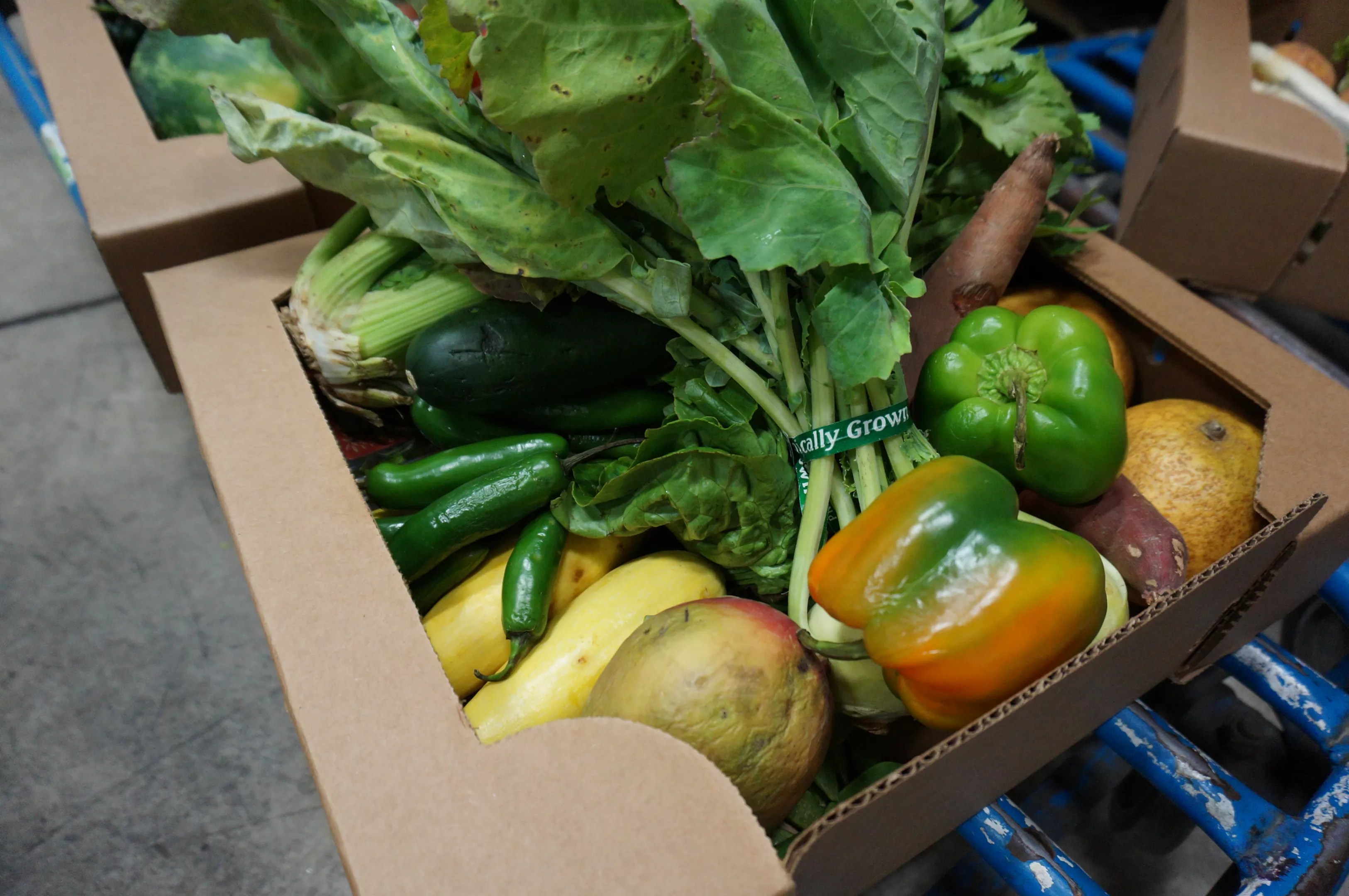
Mark Antonation

Audio By Carbonatix
Grower’s Organic co-founder Brian Freeman has been working in the organic produce business long enough that he remembers when people would tell him that organic farming was just a fad that wouldn’t last. But that was before Grower’s Organic launched in 2005 as a wholesale company focused on supplying local grocery stores and restaurants with quality fruits, vegetables and herbs. And this spring, Freeman has launched a new program to sell directly to consumers: Gobox weekly produce boxes.
Community Supported Agriculture programs, or CSAs, are nothing new; customers fork over a few hundred dollars before the growing season begins to ensure the farmer has cash flow to get things growing; in return, weekly boxes of whatever the farm is growing are delivered to those who have contributed. It’s a great way to support local farms while supplementing your grocery purchases with healthy vegetables. But the process has a few shortcomings that most CSA members are willing to overlook. Early-season boxes tend to be underwhelming in terms of variety, and even at the peak of growing season, deliveries can be dominated by whichever crop is biggest at the time. That’s fine for items like tomatoes or cherries that can be preserved, but what to do with all that zucchini?

The Pretty Ugly box is great for shoppers who prize flavor over beauty.
Mark Antonation
Gobox solves those problems by utilizing produce from the entire network of farms in the Grower’s Organic network. Freeman works closely with organic Colorado farms to bring in the best of everything in season, but he also looks to California, Mexico and elsewhere to broaden his selection (for example, watermelon are at their peak in Baja, Mexico, right now, but won’t be ready for several months in Colorado). That means the Goboxes will always be filled with a wide variety of fruits and vegetables. To critics of shipping organic produce long distances, Freeman points out that conventionally grown produce is often so dependent on petroleum products – for heavy machinery, fertilizers, pesticides and herbicides – that organic food trucked in from Mexico or California still has a smaller carbon footprint than non-organic Colorado produce, all while increasing the scope of organic farming around the world.
The Goboxes come in several configurations and price points. The small, standard package (pictured above) is meant for one or two people for a week and costs $22; there’s a large size for three or four people for $32. The Pretty Ugly box comprises the less-than-perfect fruits and vegetables that are often discarded by grocery stores or that end up being processed into canned or frozen products because they don’t meet most shoppers’ standards of beauty. The produce is still tasty and edible – Freeman says some of them are actually better because of concentrated sugars – but may appear wrinkled, spotted or misshapen. The Pretty Ugly box comes in the small size only and costs $17, with $1 of each purchase going toward We Don’t Waste, a nonprofit organization that redistributes unused foods from restaurants and other food-service facilities.
Grower’s Organic will also soon launch a Foodie box (June 16) with more exotic items like white asparagus and fava-bean pods, and the Native box (July), which will be filled with Colorado-grown produce, both at a slightly higher price point.
Whichever box customers choose, there’s no membership required. You can start and stop at any point, so you’re not committed to spending hundreds of dollars. Just sign up on the Grower’s Organic website by noon Thursday on a given week for pickup on Friday or Saturday (you choose the day and time), then head over to Grower’s Organic at 6400 Broadway.

Scott Callender shows off lettuces grown in his shipping-container vertical farm.
Mark Antonation
The Gobox program isn’t the only thing new at Grower’s Organic. Out back, a shipping container has been converted into a vertical vegetable garden by Scott Callender, owner of Callender Farms. Callender grows lettuces, herbs, peppers and other vegetables on vertical strips suspended from the ceiling of the container. Lighting, water and carbon dioxide levels are all controlled to give the plants the best growing environment while limiting the use of resources.
Callender says his setup uses 90 percent less water than conventional farming, and he can grow as much produce in 320 square feet of space as he could on 1.6 acres of land. Salanova lettuce is one of his biggest crops, but chives, a zippy wasabi arugula and even root vegetables are part of the output. Callender sells to restaurants through Grower’s Organic, so you may have already eaten something from the vertical farm without realizing it.

Organically grown wasabi arugula from the Callender Farms vertical farm.
Mark Antonation